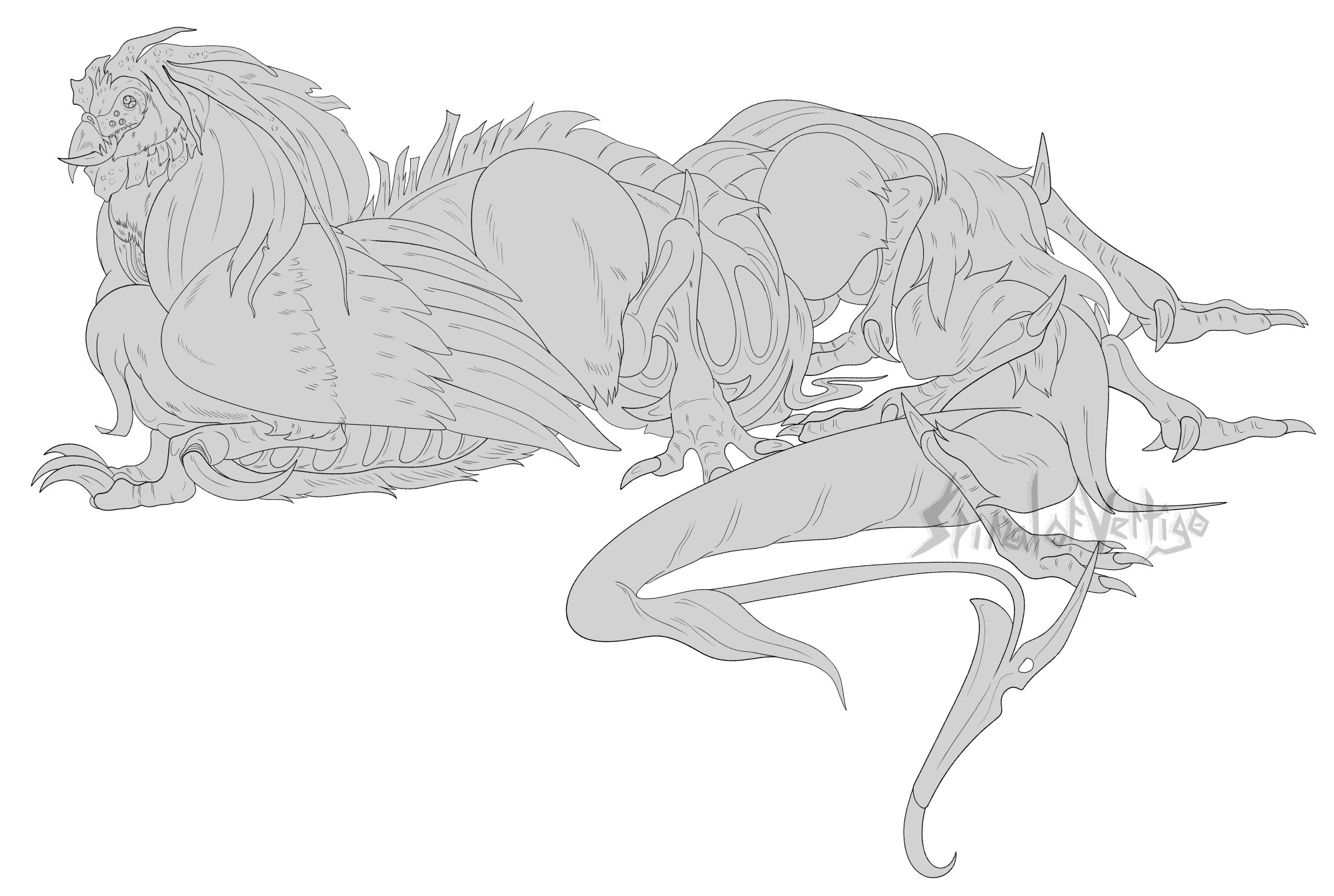On Elements
Sep. 15th, 2025 12:56 pmHis own element. That was how it was described when Anders dust-bathed in a blighted fire and did not burn. Rather, he chirped and fluffed and luxuriated in the flames that licked over his skin and did not harm him. But Vengeance was a demon, surely that made it work, right?
The same as the image of Trevelyan engulfed in the Storm. Or Connor pulling the Blizzard around himself.
Dorian was different, sitting on the ledge of the Thane's fire reaching in for handfuls of flame to sculpt into flowers in an attempt to either amuse or unnerve Sera. There's no demon in Dorian.
What there is... is a self-imposed specialization.
Inquisition has an extremely strict spell list. You'll learn a few scant spells. On PC you can keep up to 8 on your HUD, on console it's more like 4. You get enough points to max out one spell tree with maybe 3-5 spells on it, max out your Specialization with maybe 3-5 spells on it and one Ultimate, and you can start in on a second spell tree. You might even finish it.
Veilguard has an even more limited spell list. You'll learn the barest smattering of spells. I've only ever played PC but the NPCs get 5 skills, each one a spell. Maybe 1 is spent as a healing spell to throw at you, maybe not. That's it.
Compare to Origins. There are four schools of magic, each one with 16 separate spells. The Primal school contains three different elements. All at once.
What happened? Over 20 years of magical research what happened?
Unless... Unless the limited spells are self-imposed. So what exactly does one give up when one specializes? Or might a better question be...
What does the mage GAIN?
Origins, even on its lowers difficulties, still has various enemies being fully immune to various elements. Abominations are immune to nature damage, rage demons are immune to fire, revenants are immune to cold damage. Resistances abound. Such things aren't seen in Inquisition or even DA2 unless you crank the difficulty up past sanity to the far edge of Nightmare. It's easier to manage in Origins, you're expected to swap weapon spots when there's an Issue and you can just cast a different spell. Anyone who specializes their spell loadouts to be so limited is a fool. In return, you are just a man. The closest to fire immunity in the game comes from Wade's work, the closest to electricity immunity comes from Stormchaser in Awakening. As far as I know there is no massive cold immunity, there's just a solid Suck It Up.
That's what the mage gains.
As part of their training, one who specializes their magic into only a single element learns to revel in it. They learn how to endure their own element. They learn the immunity that demons still maintain because when I wrote my AU I maintained that same set of immunities throughout the series. A fire dragon is unharmed by fire. A pride demon is unharmed by the storm. Undead are unharmed by cold. It makes a mage monstrously powerful with their chosen element. Dorian's fires burn hotter than Amell's. In return, Dorian can never cast a cold spell. Ever.
There is precedent in fantasy. The highest precedent. Tolkien started it. Or, rather, Lord Elrond started it. At the end of the Second Age Elrond was a warrior, riding along with Gil Galadh against Sauron upon the slopes of Mount Doom. He was a warrior, a general, a terror upon the battlefield. Yet at the end of the Third Age Elrond was a quiet pacifist, a healer who dared not even raise his voice less his sword. It was not age or wisdom or even grief that did this to him. It was by choice. Tolkien's magical healing is unique in that it requires total pacifism from the healer in order for it to work. Elrond had had to lay down his sword for thousands of years to be worthy of the healing skills he has at the end of the Third Age. If he dares pick up that sword again, he will lose all that he's worked for. He will lose his magical healing.
The same thing applies to an overly specialized mage. They have purged their mind of all spells antithetical to their chosen element. They have specialized and overspecialized to the point where their body becomes an extension of their magic, where it becomes a perfect conduit for their power. I wonder if such specializations also causes weaknesses, a weakness to ice spells, or even in later stages the weakness of seeming more like a demon than just a mage. Certainly it begins to provide immunity to demons that are antithetical to the mage's chosen element. In later stages it might become harder and harder to tell a mage and an abomination apart.
It explains why no mages of the Southern Circles ever specialized to this degree. The Templars would kill them for it.
But the North...



